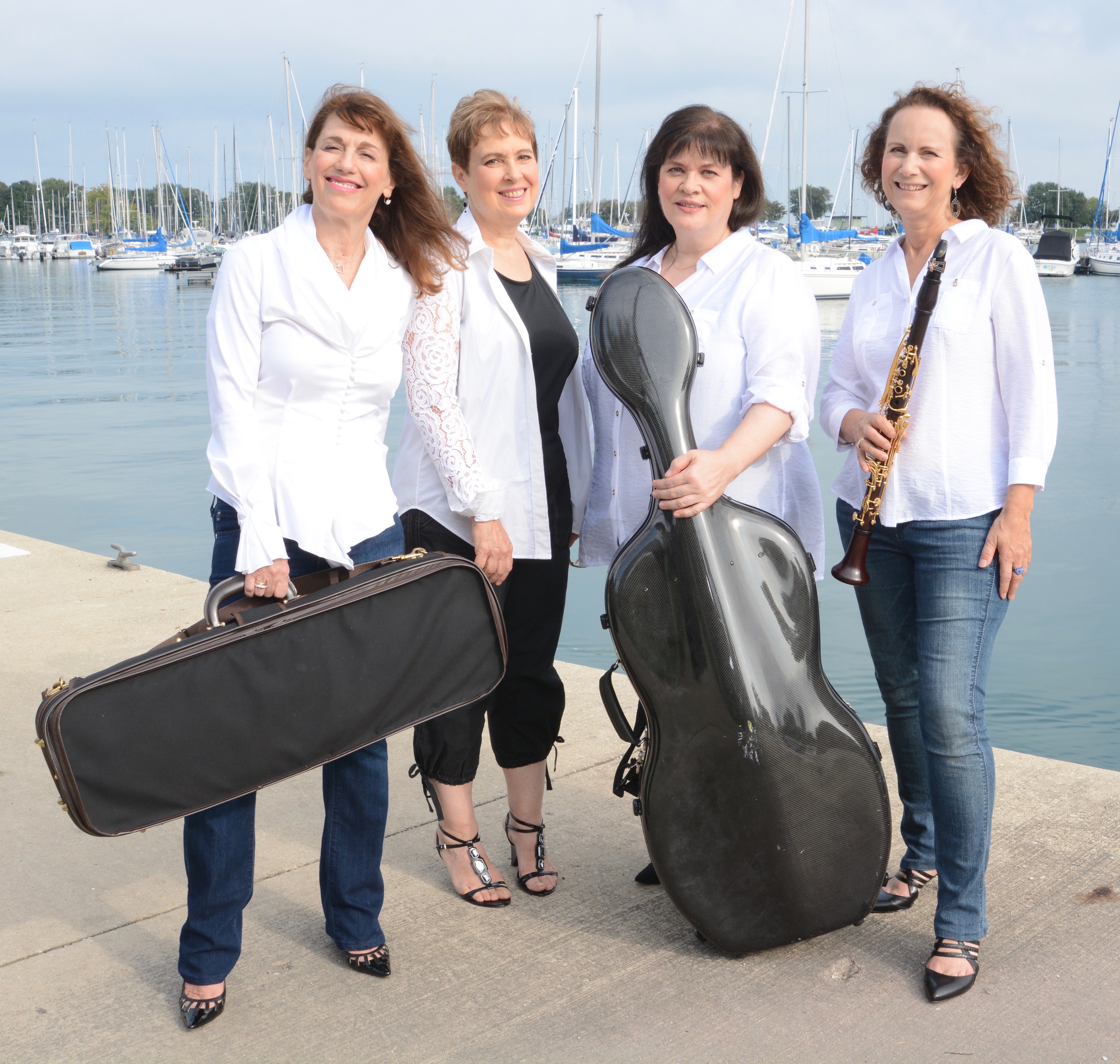Orion Ensemble serves up a Strauss discovery in season opener

The title of the Orion Ensemble’s season-opening program, “Vienna, City of My Dreams,” is a bit of a stretch. Only one of the three works featured in Sunday’s concert at Nichols Hall— Schubert’s Adagio and Rondo Concertante—was actually composed in the Austrian capital, What was a constant, however, was the fresh perspective offered by the Orion’s program.
Mozart’s K.378/317d, originally a violin sonata, sounded newly lush and luminous in an arrangement for clarinet and string trio by the German publisher Johann Anton André (1775–1842), whose business acumen was more impressive than his composing chops. (André purchased hundreds of Mozart’s manuscripts from his widow Constanze in 1799, just before his publishing house introduced lithograph scores to the world.) The juvenilia that rounded out the program was even more illuminating: Schubert’s two-movement nugget, composed in 1816 but never performed in his lifetime, presages the “Trout” Quintet three years later. And Richard Strauss’s fascinating Piano Quartet reveals a Brahms byway in the 20-year-old composer’s aesthetic pivot from Mozart to Wagner.
Much like the concert’s concept, the Orion Ensemble—joined by regular guest violist Stephen Boe—ultimately made up in commitment what it occasionally lacked in cohesion with engrossing readings of these novelties.
Scored for piano and string trio, Schubert’s Adagio and Rondo Concertante, D. 487, is characterized by an expansive stateliness in the strings, punctuated by fantasia-like piano riffs. Some commentators have generously characterized the work as a concerto-like showcase for the piano, though its role on the whole is more that of conspicuous collaborator.
The keyboard part certainly never turned ostentatious in the capable hands of Orion pianist Diana Schmück, who lent an impressive sagacity to the Adagio and glittering fleetness to the Rondo. Violinist Florentina Ramniceanu’s bold leadership, cellist Judy Stone’s supportive contributions, and Boe’s constant warmth made this a winsome interpretation, though one might have wished for more light charm in the finale.
André’s arrangement of Mozart’s sonata recasts the violin part as a dialogue between violin and clarinet. Clarinetist Kathryne Pirtle and Ramniceanu effectively seized upon these opportunities for interplay, despite occasional disagreements over tempi. Pirtle, in her only appearance of the afternoon, shone with her plush sound and sensitive, sometimes playful phrasing.
The last half of the concert was dedicated to Strauss’s Piano Quartet, a work nearly as ambitious for latter-day interpreters as it must have been for its young composer. Though structurally conventional, the 40-minute work gestures towards the volatile extremes of Strauss’s future tone poems. The inner movements contain some of the most criminally underrated music from Strauss’s early period: a sparkling, Mendelssohnian Scherzo with its serenade-like trio, and a heartrendingly tender Andante.
The Orions’ intonation and ensemble woes throughout indicated that their hold on this piece was somewhat less assured than in the Mozart and Schubert. The unselfconscious lyricism of the third movement, however, inspired some of the most passionate playing of the afternoon, with each ensemble member contributing arresting solos. By the finale, the group had hit its stride, bringing this forgotten gem to an athletic close.
This program will be repeated 7:30 p.m. Wednesday at PianoForte Studios and 7 p.m. Sept. 30 at Chapelstreet Church in Geneva. orionensemble.org
Posted in Performances




